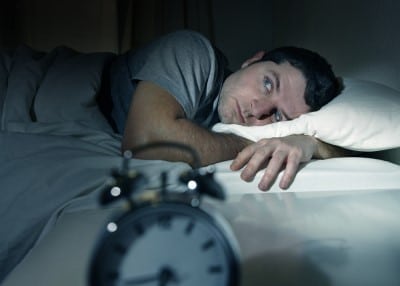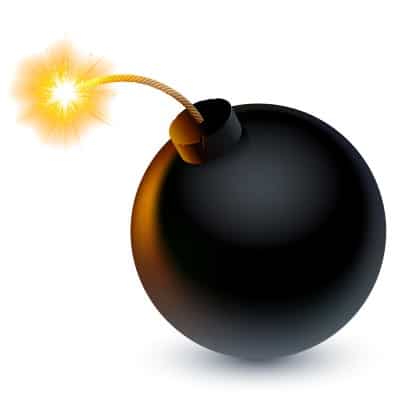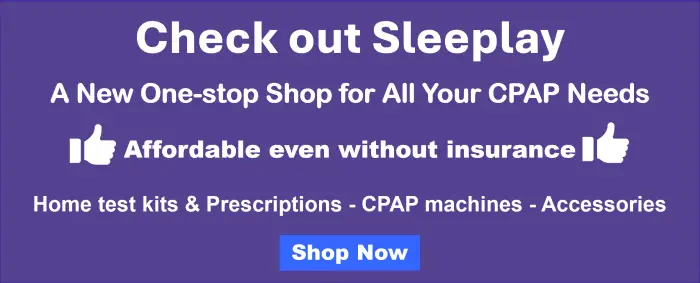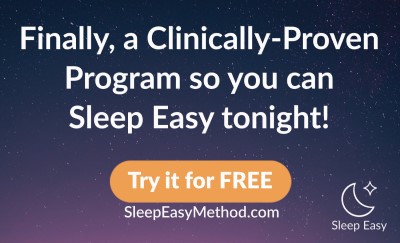
Sleep apnea and vaping, it’s more serious than you think
By Jason Wooden, PhD | September 10, 2019
Worried about your sleep apnea and vaping? Living with sleep apnea can be tough, so it’s important to avoid anything that can make it harder.
Vaping has grown in popularity as a safer alternative to tobacco cigarettes, but it’s likely just as bad. The nicotine can still wreck your sleep and research says vaping can aggravate sleep apnea.
Good news – you can improve things with better sleep hygiene, making sure you have a sleep apnea treatment that works for you, and weaning yourself off caffeine.
Sleep apnea and vaping, what’s the big deal?
So, you’re wondering whether sleep apnea and vaping can mix together?
Maybe you’re curious if vaping will cause or worsen sleep apnea symptoms…
Or perhaps, you’re thinking if you switch to vaping maybe your sleep apnea won’t be as bad…
Whether you’re asking for yourself or someone you know, it’s a fair question given how popular vaping has become.
Vaping devices, also known as e-cigarettes, are an alternative to traditional cigarettes. They work by heating a nicotine solution to produce a nicotine-rich vapor which can be inhaled by a user.
Vaping continues to grow in popularity with one in 20 US adults using e-cigarettes.
Many use it as a safer alternative to traditional cigarettes, assuming there are fewer toxic chemicals since there’s no tobacco or wrapper.
Some use it as a way to wean off nicotine while others simply find it convenient to use in places where smoking isn’t allowed.
Regardless of why you are vaping, it’s worth thinking about what it’s doing to your sleep apnea.
We know how important sleep is to staying healthy and being able to function each day.
Sleep apnea is a real sleep wrecker and if left untreated can lead to other serious problems. It’s been linked to high blood pressure, heart disease, stroke, diabetes, and depression.
Sleep apnea can make your nights and days miserable.
That makes it really important to make sure you’re not doing anything that can make a bad situation worse and jeopardize your recovery.
So, let’s take a serious look at what we know about sleep apnea and vaping.

What nicotine does to sleep and sleep apnea
Sleep apnea and vaping hasn’t been directly studied, but we do know quite a bit about what smoking does to sleep.
In studies, smokers take longer to fall asleep. They also don’t sleep as long or as deeply as they should.
That’s because the nicotine speeds up your heart and stimulates alertness, making you feel more awake when trying to fall asleep. Once you eventually get to sleep, you can go into withdrawal which causes your brain to wake you up for more nicotine.
It’s worth noting that nicotine can also cause or worsen anxiety which makes it harder to fall asleep.
Smoking cigarettes is just as bad for obstructive sleep apnea, the most common sleep apnea type caused by a narrowing of the airway. There are currently 1 billion people living with it.
(If you’re not sure about your sleep apnea type, you can get a quick explainer here.)
Smoking can cause or worsen sleep apnea symptoms. The material in cigarettes can irritate the lining of the airway causing it to swell and narrow. It can also stimulate the airway muscles to relax which can lead to more narrowing and more severe symptoms.
Smoking directly affects both sleep and the airway passage, making it the perfect storm for poor sleep.

Sleep apnea and vaping likely just as bad as tobacco cigarettes
Okay, we’ve talked about how bad smoking is, but what you’re really wondering about is sleep apnea and vaping.
You’ve gotten rid of the bad stuff in tobacco and a cigarette wrapper, so maybe it’s not’s so bad, right?
Again, it’s hard to say since this hasn’t been well studied.
But we do know that with vaping you still get loads of nicotine which is a known sleep wrecker. That’s bad for sleep apnea sufferers who don’t need anything else worsening their poor sleep.
Furthermore, vaping has been linked to wheezing in adults which is often a precursor to other issues such as sleep apnea. Studies have also shown that vaping causes inflammation in lung tissues.
If vaping is causing inflammation in the lung, it might be doing the same to your airway. This is concerning since obstructive sleep apnea has been linked to inflammation.
In fact, in studies sleep apnea severity has been found to correlate with high levels of inflammation – the worse your sleep apnea is the more inflammation found in the body.
Bottom line, with vaping you are still facing a double whammy to your sleep and sleep apnea.

Other things to think about for sleep apnea and vaping
So far, we’ve mostly talked about sleep apnea and vaping, but there are plenty of other downsides to keep in mind.
Yes, E-cigarettes contain fewer chemicals than in traditional cigarettes. However, they still contain chemicals that can harm the body.
And, nicotine is still nicotine – it’s just as addictive and with extra strength cartridges you can get more than you would in a tobacco cigarette.
Other health risks that may come with vaping include:
- heart attacks
- lung damage
- gastrointestinal disorders
- hypertension
- diabetes
- obesity
- high blood pressure
- anxiety and depression
- cancer

So, what can I do about my sleep apnea and vaping?
So, what can I do about my sleep apnea and vaping?
Given how serious the downsides are for both sleep apnea and vaping, let’s take a look at what you can do about it.
Right now, you might be in a sleep-deprived fog feeling stuck and wondering if there’s a way out.
Good news, you definitely have options.
Here’s are some things to focus on:
1) Improve your sleep hygiene
It’s important to make sure you’re doing everything you can to keep your body’s sleep-wake cycle on track. This is where sleep hygiene comes into play.
It’s what you do during the evening and at bedtime that can set the stage for quality sleep. It’s also an important part of any insomnia recovery plan as bad sleep hygiene can undercut it.
What nicotine is doing to your sleep is bad enough, so make sure you’re not doing anything else to make it worse.
For better sleep hygiene you should:
- Avoid naps
- Exercise during the day
- Limit your caffeine to earlier in the day
- Avoid large meals, alcohol, or stimulants before bedtime
- Limit your use of electronics at bedtime (TVs, tablets, smart phones)
- Maintain a bedtime routine to help you wind down
- Keeping your bedroom quiet, dark, and cool
There are lots of things that can affect sleep and some are in your control. Go through this sleep checklist to find out changes you can start making tonight.
There are plenty of sleep aids to choose from to help you improve your sleep environment.
2) Make sure your sleep apnea is under control
Do you have your sleep apnea under control?
You’ve probably already heard this, but sleep hygiene by itself will not cure your sleep apnea. You need to get in and see a sleep specialist to make sure you’re doing everything you can do for your sleep apnea.
Today sleep apnea is a very treatable but 80 percent of patients with moderate and severe symptoms go undiagnosed.
Have you tried CPAP and given up?
(You’re not alone, many people have a hard time with the mask and CPAP setup.)
Don’t lose hope.
While CPAP is one of the most effective sleep apnea treatments, it’s not the only game in town.
Today, there are more options than ever including more user-friendly cpap masks, body positioning devices, innovative neural therapies, and surgical implants.
(You can get a quick rundown of what’s new here.)
A sleep specialist can help you figure out which of the newer treatments might do the trick for you and help make adjustments as needed.
They can also check for other health issues that may wrecking your sleep.
Asthma, allergies, acid reflux, kidney disease, cardiovascular disease, and chronic pain can keep you up at night. Prescription drugs, anxiety, and depression can also cause or worsen sleep issues.
If you don’t deal with these underlying health issues, they can sabotage all your hard work to sleep better.
3) Wean your-self off nicotine for good
If you’re worried about sleep apnea and vaping, perhaps it’s time to say bye-bye to nicotine.
There are plenty of reasons to quit given the many other health risks from vaping and nicotine.
And even though e-cigarettes are thought to be less harmful than traditional cigs, the evidence is growing that they can be just as bad for your lungs and increase your risk for respiratory diseases.
Another reason is quit is the “ping pong” effect between sleep and nicotine. Smokers generally sleep more poorly and poor sleep quality is associated with more nicotine dependence.
Once you start weaning your self off of nicotine, you’ll deal with withdrawal symptoms, including anxiety, irritability, headaches, fatigue, and food cravings.
However, experts say the withdrawal symptoms peak 2 to 3 days after you quit and are done within 1 to 3 months. It also takes at least 3 months for your brain chemistry to return to normal.
During this time, there’s lots you can do to make life easier. Did you know that exercise may help manage your withdrawal symptoms and smoking urges? It can also help improve your sleep.
Tips for Quitting Nicotine:
- Let people know you’re quitting, it’s easier with support
- Know your high-risk times & triggers, plan for them
- Change your habits
- Remove all smoking reminders
- Stay busy
- Find alternative activities for when you get the urge
- Find other ways to relax
- Exercise
- Reward your successes
Learn more: AdditictionRecovery.org
Tips for Quitting Nicotine:
- Let people know you’re quitting, it’s easier with support
- Know your high-risk times & triggers, plan for them
- Change your habits
- Remove all smoking reminders
- Stay busy
- Find alternative activities for when you get the urge
- Find other ways to relax
- Exercise
- Reward your successes
Learn more: AdditictionRecovery.org
Useful links for sleep apnea and vaping
Electronic Cigarettes (CDC)
Recreational Vaping (Center on Addiction)
Tips From Former Smokers (CDC)
E-Cigarettes and Lung Health (American Lung Assoc.)
3 things to remember about sleep apnea and vaping:
- Vaping is likely just as bad as tobacco cigarettes
- The nicotine vapor can wreck your sleep and aggravate sleep apnea
- For better sleep, improve your sleep hygiene, sleep apnea management, and wean yourself off of nicotine
You may also be interested in:
Sources:
1. Prevalence and Distribution of E-Cigarette Use Among U.S. Adults: Behavioral Risk Factor Surveillance System, 2016, Ann Intern Med. 2018; 169(7):429-438.
2. Differential Effects of Addictive Drugs on Sleep and Sleep Stages, J Addict Res (OPAST Group). 2019; 3(2).
3. Anxiety & Smoking, NIH Website
4. Smoking, obstructive sleep apnea syndrome and their combined effects on metabolic parameters: Evidence from a large cross-sectional study, Sci Rep. 2017; 7: 8851.
5. Association of smoking and electronic cigarette use with wheezing and related respiratory symptoms in adults: cross-sectional results from the Population Assessment of Tobacco and Health (PATH) study, wave 2, Tob Control. 2019 Feb 13.
6. Which Came First: the Inflammation or the Sleep Apnea?, 2017, Sleep Review Magazine
7. Upper airway and systemic inflammation in obstructive sleep apnoea, European Respiratory Journal 2016 48: 1108-111.
8. Harmful effects of nicotine, Indian J Med Paediatr Oncol. 2015; 36(1): 24–31.
9. Three more epidemiological studies find that e-cigarette use increases lung disease, 2019, UCSF Center for Tobacco and Control Research and Education website
10. Sleep quality in cigarette smokers: Associations with smoking-related outcomes and exercise, Addict Behav. 2019; 90:71-76.
11. How to Quit Smoking Plan – 8 Steps to Quitting For Good, Addictions and Recovery website
Connect with us:
About Us
Better Sleep Simplified® was founded as a place for you to get clear and well-researched information.
Our goal is to make sure you know about your options so that you take action sooner rather than later.
Check us out on YouTube:
Watch and Learn
Helpful sleep tips, interesting sleep facts and statistics you want to know about
Affiliate Disclosure
This site is a participant in the Amazon Services LLC Associates Program and other affiliate advertising programs designed to provide a means for sites to earn advertising fees by advertising and linking to them.
Important: BetterSleepSimplified.com is for informational purposes only and is not intended or implied to be a substitute for professional medical advice, diagnosis, or treatment. Always consult a physician for sleep and health concerns. See additional information.



